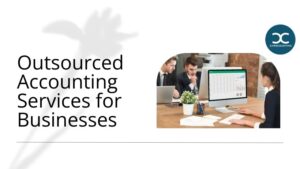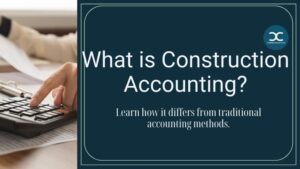The complexity of tax codes and financial regulations can overwhelm even seasoned entrepreneurs when starting a business. Amid the myriad startup tasks, financial management often takes a backseat until tax season looms ominously. However, engaging a skilled accountant from the outset can safeguard your ventures, ensuring compliance and fiscal health throughout the year.
Recognizing Business Needs
Understanding your projected cash flow, funding requirements, and inventory management systems is critical when determining the level of accounting expertise needed. Reflecting on these complexities can guide you toward a proficient accountant whose skills align with your business demands.
Having a professional manage your finances free you to focus on growing your business, drawing on their expertise to make strategic decisions based on accurate financial insights.
Analyzing Financial Tasks
Effective financial management is pivotal— a cornerstone— for any burgeoning enterprise’s operational health and longevity. Accurate bookkeeping lays the foundation for robust financial health and decision-making in your startup journey.
As you assess the scope of your company’s financial needs, the complexity of tax legislation, and the necessity for precise financial reports, the value of an adept accountant becomes evident. This recognition underscores the importance of integrating professional accounting expertise early in your business’s lifecycle.
Navigating the intricate realm of fiscal responsibilities—including tax compliance, financial planning, and transactional recording—can be streamlined when an accountant’s acumen is leveraged, aiding in achieving greater financial clarity.
Projected Growth Evaluation
Anticipating future financial trajectories is paramount for a developing enterprise, as it guides strategic investments and operational scaling. A firm understanding of projected growth metrics is essential, influencing every facet of business strategy. Forecasts must be crafted with meticulous precision and realism. An accountant’s insights can ensure this analytical rigor.
Accurate projections hinge on comprehensive analysis, including market trends, industry benchmarks, and historical data. Accountants employ sophisticated modeling techniques to craft these projections, illuminating paths toward sustainable growth.
Accountants can devise strategies to manage cash flow, mitigate risks, and capitalize on opportunities with a credible projection. Their expertise aids in aligning financial objectives with the overall vision for the business, steering towards optimal fiscal health and competitive standing within the market.
Credentials Search
When aspiring to hire an accountant, validating their professional credentials is a critical first step. Secure the services of someone who is not only academically accomplished but also carries definitive certifications. In the United States, the most revered designation is that of a Certified Public Accountant (CPA). This title assures you entrust with your finances to a practitioner who has undergone rigorous examination and maintains ongoing education to retain their licensure.
It’s also advisable to search for accountants who hold memberships in reputable industry organizations such as the American Institute of CPAs (AICPA) or state-specific societies. These memberships reflect an accountant’s commitment to ethical standards, professional development, and current knowledge of the regulatory landscape. Furthermore, checking whether they have any specialization relevant to your industry can be advantageous. To exemplify, someone who holds a Chartered Global Management Accountant (CGMA) designation might be particularly adept at providing strategic business advice, which is essential for startups aiming to navigate the complexities of growing a new business efficiently.
Licensing and Certification
Ensure proper licensure is non-negotiable. When searching for a qualified accountant, priority must be placed on verifying their licensing status. A licensed professional must adhere to the professional standards and ethical guidelines of the governing bodies, such as the National Association of State Boards of Accountancy (NASBA) or state accounting boards. Licensure grants legitimacy and safeguards your enterprise against inept financial guidance.
Only hire a certified accounting professional. Consider credentials beyond basic licensing. For instance, a Certified Management Accountant (CMA) offers expertise in financial analysis and strategic management, which can be critical for business planning and decision-making.
Select a specialist with industry-specific expertise. Professionals maintaining peer-reviewed credentials signal a dedication to mastery and excellence in their field. Refinement of knowledge through Continuous Professional Education (CPE), as required by certifications like CPA, ensures your accountant remains abreast of the evolving financial landscape, embodying an asset to your burgeoning business.
Industry-specific Experience
When choosing an accountant, prioritize one with a profound understanding of your industry. This knowledge can be pivotal in optimizing tax positions, mitigating risk, and crafting financial strategies that align with your business model. An industry-savvy accountant can be a game-changer for you. Expert knowledge within your sector enables the accountant to identify unique financial opportunities and compliance requirements that are not apparent to the generalist.
The right accountant will have a grasp of sector-specific regulations (such as healthcare compliance or manufacturing standards) and financial nuances. In areas where complex industry-specific tax incentives exist, a specialized accountant has the understanding to navigate these provisions, potentially unlocking substantial fiscal benefits that amplify your financial health.
The value they bring can shape the trajectory of your company, ensuring that operations are compliant, financially efficient, and strategically poised for growth. Ultimately, the goal is to choose an expert whose forte aligns with your company’s niche, bringing insight and expertise that offers more than traditional accounting services.
Interviewing Candidates
During the interview process, seeking behavioral and technical competencies is paramount. Ask scenario-based questions to gauge how candidates handle complex situations, paying close attention to their problem-solving skills and attention to detail. Evaluate their communication abilities by discussing hypothetical business scenarios; an accountant adept in understandably articulating intricate financial matters is invaluable.
Confirm that they demonstrate a proactive approach, offering insights and strategies beyond basic accounting, which signals their capability to contribute significantly to your business’s financial plan. Discuss their experience with industry-specific regulatory issues, their process for staying current with changing tax laws, and how they’ve benefited past clients in tangible ways. Your goal is to unearth an accountant and a financial ally who can translate numbers into business insights.
Essential Questions to Ask
What specific industries have you worked within?
In evaluating potential accountants, it is prudent to understand their sector-specific expertise. Accountants who exhibit a firm grasp of your business’s industry can offer specialized insights that are particularly relevant, ensuring compliance with sector-specific regulations and identifying tax-saving opportunities unique to your domain of operations. Moreover, accountants conversant with your industry’s nuances can provide tailored advice that aligns with your business objectives.
What is your experience with businesses at my stage of development?
An accountant’s understanding of your business lifecycle phase is crucial. Early-stage companies face different financial challenges compared to established firms, so it’s essential to ensure that your accountant has the requisite experience to guide you through the nuances of startup financial management, from cash flow forecasting to funding options.
How will you help manage my business’s tax obligations?
Tax management is a cornerstone – find an accountant skilled in optimizing tax situations. Selecting an accountant with expertise ensures you minimize liabilities and stay compliant with local, state, and federal tax regulations. They should be able to act proactively, advising on tax-efficient strategies tailored to your business’s specific circumstances.
Can you describe your approach to financial risk management?
Addressing financial risks is pivotal to business stability. A knowledgeable accountant should be adept at identifying and mitigating financial risks, offering practical solutions that safeguard your business’s assets from unforeseen financial challenges. Their experience in this area can result in strategies that secure your business and contribute to its growth and stability.
What are your strategies for staying current with accounting and tax laws?
In the ever-evolving landscape of accounting regulations and tax law, staying up to date is non-negotiable. Ask about the accountant’s commitment to continuous education and how they ensure they are equipped to provide accurate and legally compliant advice. Their expertise in the context of the latest regulations and practices is essential for maintaining your business’s financial integrity and long-term sustainability.
Assessing Compatibility
Compatibility extends beyond professional skills and encompasses interpersonal dynamics. An accountant must mesh well with your business culture and objectives to foster a productive and harmonious working relationship.
When engaging an accountant, it’s crucial to consider if their work style and values align with the operational ethos of your enterprise. A misalignment here can lead to friction and misunderstandings, ultimately impacting the effectiveness of the financial guidance provided.
Reflect on how the accountant communicates. Are they transparent and proactively sharing information?
The ability to convey complex financial concepts is vital for your peace of mind and decision-making confidence as a business owner.
Scrutinize their problem-solving methodologies. Does the accountant demonstrate innovative thinking and a willingness to tailor solutions to your business’s unique challenges?
Their adaptability and resourcefulness can be a significant asset in strategic planning.
Finally, assess the longevity of the relationship. Is this a partnership you can see prospering for years to come?
Building trust with an accountant who understands the evolving needs of your business is invaluable.
Understanding Costs
When allocating resources to onboard a proficient accountant, comprehending the intricate labyrinth of costs is paramount. This entails the direct fees associated with their services and the potential return on investment. The right accountant brings more than number-crunching expertise; they are a strategic advisor who can illuminate paths to financial efficiency and growth. Invest in an accountant whose value transcends the immediate expense, fostering a symbiotic relationship where your business’s fiscal health is intricately linked with their professional acumen.
Fee Structures Explained
The appropriate fee structure is crucial when hiring an accountant for your budding enterprise.
- Hourly Rate: This rate is ideal for businesses requiring variable accounting services without a predictable pattern. It enables payment only for the time spent.
- Fixed Fee: This option is suitable for services with a well-defined scope, providing certainty on costs for specified accounting tasks or projects.
- Retainer Basis: Beneficial for ongoing support, it entails a consistent monthly fee for an agreed-upon set of services.
- Value-Based Pricing: This is predicated on the perceived value delivered rather than the time spent, aligning the accountant’s incentives with the business’s performance.
- Project-Based Fee: When specific, one-off projects arise, this structure allows for a mutually agreed sum to cover the project’s entirety. It’s imperative to weigh the complexity and frequency of accounting needs against these models.
Each structure harbors implications for budgeting and cash flow management, making it vital to align your decision with business goals and financial strategies.
Avoiding Hidden Charges
Probe diligently into billing procedures. Accountants may leverage diverse fee structures, and a transparent billing framework is essential to preempt unforeseen expenses. When engaging an accountant, it’s critical to inquire about potential additional fees beyond the introductory rate, such as for communication, reports, or unplanned consultations. Moreover, ascertain whether there could be charges for electronic access to financial data or year-end documentation preparation.
Familiarize yourself with all possible fees upfront. Request a detailed contract outlining all fees – it safeguards against unwelcome surprises. Anticipating hidden charges demands an explicit and thorough contract, crystallizing every element of the fee structure. This contract should document all services included in the main fee and delineate any extra costs that might arise during the business relationship.
Regularly review billing statements for accuracy. Be vigilant about scrutinizing every invoice for accuracy and consistency with the pre-agreed terms. Adhering to meticulous invoice assessments ensures that
What are the key financial responsibilities of an accountant when starting a business?
When starting a business, it is crucial to understand the key financial responsibilities of an accountant. The expertise of an accountant can help you navigate the complex financial landscape and ensure the success of your venture. Here are some essential financial responsibilities that an accountant can assist with:
-
Financial Planning:
- An accountant can help create a solid financial plan for your business, including budgeting, forecasting, and cash flow management.
- They can analyze your financial goals and guide you in making informed decisions to achieve long-term profitability.
-
Record Keeping and Bookkeeping:
- An accountant can establish efficient systems for recording and organizing your financial transactions.
- They can maintain accurate and up-to-date books, including income, expenses, assets, and liabilities.
- In addition, they can ensure compliance with accounting standards and tax regulations.
-
Tax Planning and Compliance:
- An accountant can help you navigate the complex world of taxation, identifying potential tax deductions and credits.
- They can assist in preparing and filing tax returns accurately and on time, minimizing the risk of penalties and audits.
- Furthermore, they can advise on strategies to optimize your tax liabilities and take advantage of tax incentives.
-
Financial Analysis:
- An accountant can provide insightful financial analysis, helping you understand key performance metrics and trends.
- They can generate financial statements and reports, enabling you to make informed business decisions based on sound data.
- By conducting ratio analysis and benchmarking, they can evaluate your business’s financial health and identify areas for improvement.
-
Financial Risk Management:
- An accountant can assess and mitigate your business’s financial risks, such as credit risk, liquidity risk, or market volatility.
- They can help implement internal controls and financial safeguards to protect your assets and prevent fraud.
- Additionally, they can assist in obtaining appropriate insurance coverage and managing cash reserves to ensure financial stability.
In summary
engaging the services of an accountant when starting a business is essential to handling the key financial responsibilities. Their expertise will enable you to make informed decisions, ensure compliance, and optimize financial performance, contributing to your business’s long-term success and growth.
discrepancies are swiftly identified and addressed, thereby maintaining budgetary control over your financial affairs.






